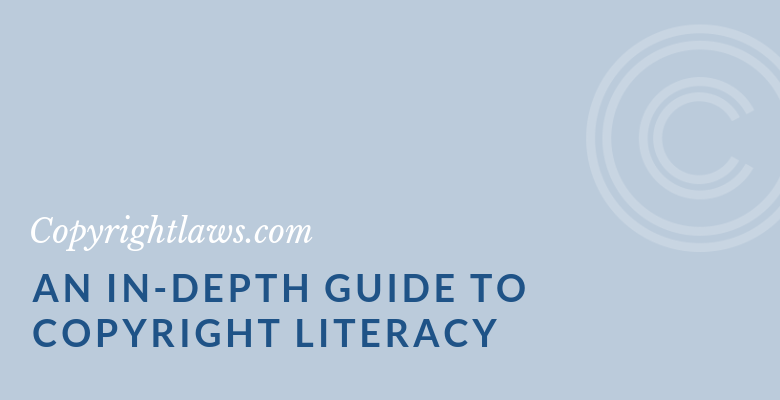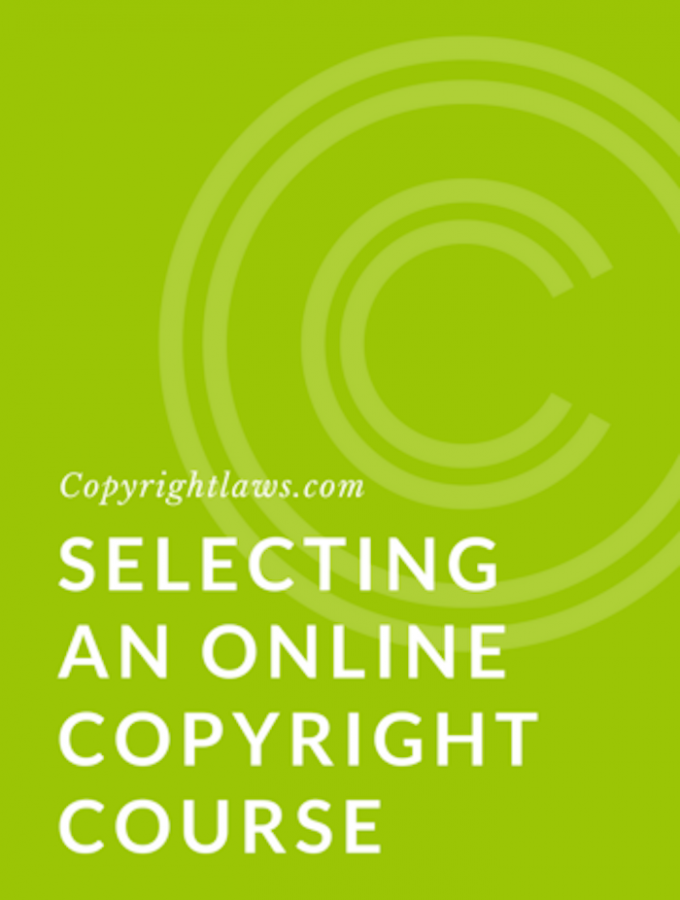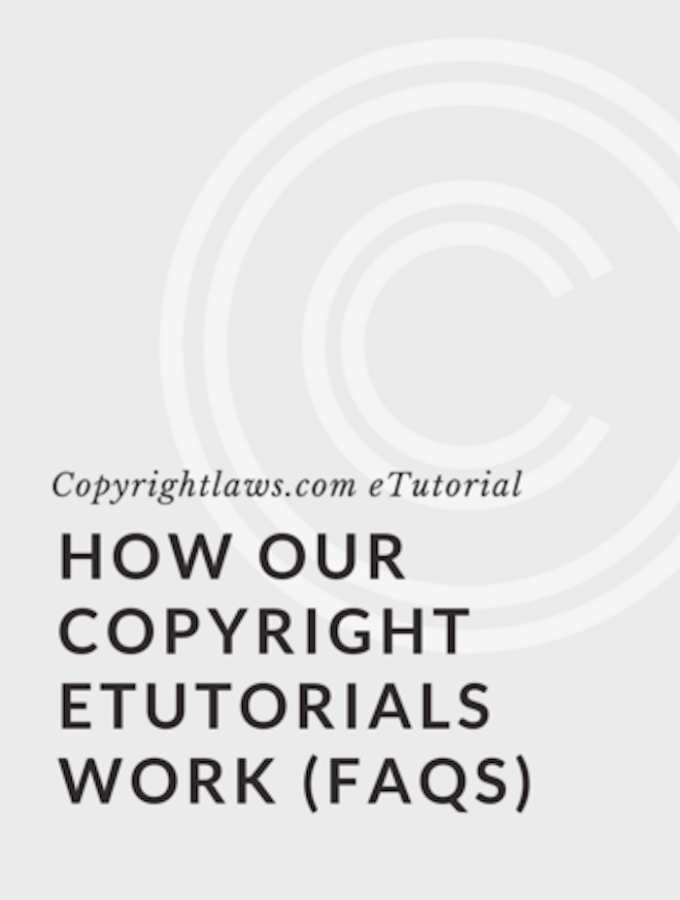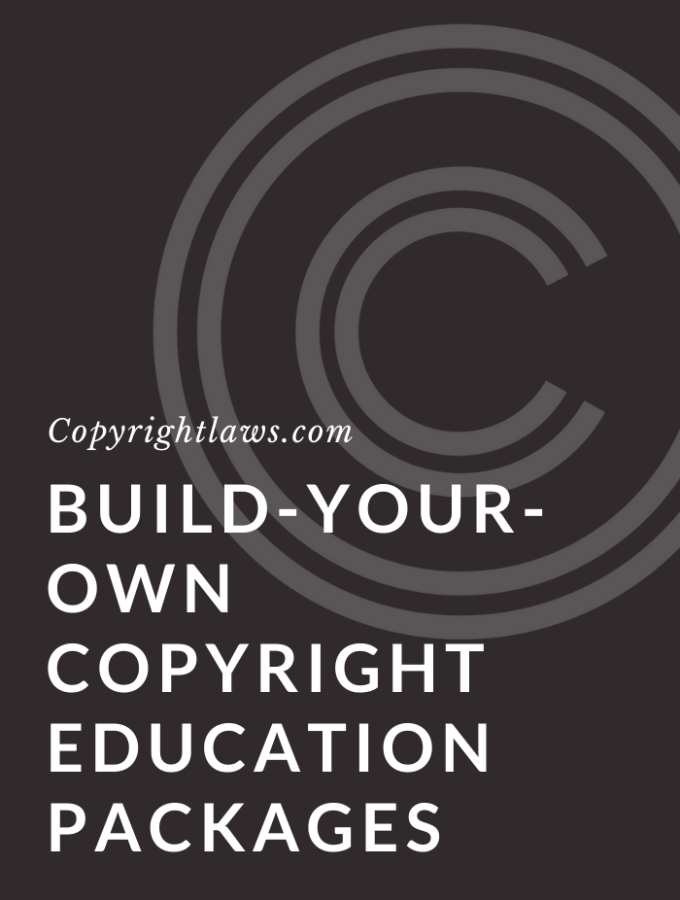
Copyright literacy is about educating fellow employees and the public about copyright law and raising their awareness of how copyright law affects them.
WIPO Magazine’s article Understanding Copyright — A Life Skill, by Lesley Ellen Harris, discusses the importance of copyright and intellectual property education on a broad basis.
Once the preserve of specialists, copyright has become a mainstream issue, and understanding how it works is an increasingly necessary life skill. In the online world, consumers come face to face with copyright law, but many remain confused and unsure about what they may or may not legally do. […] Copyright education offers a steady and sure means of building understanding and respect for creators’ rights.
Many of us are exposed to copyright issues in our daily lives, often without awareness or thought. With the proliferation of internet-connected devices and digital access and sharing, we have the products of others’ creative expression in the palms of our hands — quite literally at our fingertips.
Quick Navigation to An In-Depth Guide to Copyright Literacy
- What Is Copyright Literacy?
- Copyright as a Life Skill
- Copyright Literacy in the Library
- Tips for Effective Copyright Education
- Case Study: Copyright Awareness Day
What Is Copyright Literacy?
Literacy is defined as competence or knowledge in a specific area. While there’s no dictionary definition of copyright literacy, we define it as referring to important competencies and knowledge that include:
- Understanding basic elements of copyright law
- Identifying third-party materials that are protected by copyright
- Recognizing copyright or licensing issues and seeking assistance
- Appreciating that copyright law is nuanced and its application often depends on the facts of each situation
- Navigating fair use or fair dealing and specific exceptions for libraries, archives, museums, educational institutions and others set out in copyright statutes
- Obtaining permissions and licenses where necessary
- Complying with terms and agreements in license agreements
- Recognizing copyright infringement and licensing violations and being aware of their consequences
- Keeping current on amendments to copyright laws and court cases
Copyright Literacy Protects Against Infringement and Encourages Creative Use of Content
Copyright literacy helps your copyright stakeholders unravel and understand the many layers of copyright and their role in relation to it. It enables them to:
- Apply that information to their uses of copyright-protected materials
- Take an active role in copyright management
- Lower copyright infringement risks
Knowledge and understanding can help prevent infringement. Infringement is the unauthorized or illegal use of copyright-protected materials.
It’s also important to realize that lack of copyright understanding and fear of infringement can prevent you from using readily available materials in new and inventive ways.
Copyright as a Life Skill
Maria Pallante, former U.S. Register for Copyright, describes understanding copyright as a life skill, akin to reading a map or using GPS. She asserts that at least a basic understanding of copyright law is required for everyone and the level of copyright knowledge needed varies depending on your field.
It’s one of those life skills now, right? When you graduate from high school or college, you should know how to read a map, you should know how to use GPS, you should know a little bit about copyright. If you are somebody who is going to be in a field where you will encounter copyrighted materials all the time, you should know more. If you’re going to be an artist or musician and you’re getting a red-hot degree in the performing arts, you should know a lot. And I don’t think that’s quite the case — I don’t think it’s been built into the curricula.
It’s safe to say nearly everyone will encounter a copyright issue at some point. It may be through accessing content on sites such as Facebook, or viewing and downloading videos and music. Or, it may be while searching online for images and photographs to include in your presentation slides.
Understanding copyright law and how to legally use copyright-protected content benefits you both professionally and personally.
Copyright Literacy in the Library
Many believe copyright literacy begins in the library.
- First, librarians and information professionals must learn about the principles of copyright law and licensing digital content. This is most important on a practical level so they can answer daily copyright and license compliance questions. See A Simple Guide to Copyright for Librarians and all of our free downloadable Simple Guides to Copyright.
- Second, as gatekeepers to content, librarians are in the obvious position of teaching others about copyright law and legally using content licensed from aggregators and online publishers.
IFLA Policy Statement on Copyright Education
The International Federation of Library Associations (IFLA) recently published its policy statement on copyright education and copyright literacy. The statement is aimed at governments, libraries, library associations and library educators. It emphasizes the importance of copyright literacy within libraries. The report states that “librarians and other information workers need to be copyright literate.”
What does this mean? IFLA defines copyright literacy as:
… sufficient copyright knowledge to be able to take well informed decisions on how to use copyrighted materials. It includes understanding the structure, functioning and implications of the copyright system, as laws, practices, and user expectations evolve. Copyright education is the process of developing and updating copyright literacy.
The statement sets out examples where copyright literacy is key in public and school libraries, such as for making copies for educational uses and in accessible formats for people with disabilities. It also provides examples for libraries that have broader roles such as mass-digitization projects and negotiating licenses for digital content such as electronic databases and periodicals. The report states,
Lack of knowledge may result in mis-application of the law, and lead either to infringement, or overly restrictive limits on what users can do.
Librarians are often the copyright leaders in their organizations and educate and influence others, thereby shaping institutional policies and use of copyright-protected content.
At the same time, the statement explains how copyright knowledge varies from librarian to librarian, and that there is an important need for copyright training among information workers. It states,
… a greater level of copyright literacy within the profession as a whole will mean that more users’ questions can be answered in a quick, confident and well-informed way.
The IFLA policy statement urges all to be aware of and support copyright literacy among all information workers.
Information Literacy Includes Intellectual Property
In the recently published CILIP Definition of Information Literacy 2018, the definition of information literacy includes:
It incorporates critical thinking and awareness, and an understanding of both the ethical and political issues associated with using information. [...] Information literacy is associated and overlaps with other literacies, including specifically digital literacy, academic literacy and media literacy. It is not a stand-alone concept, and is aligned with other areas of knowledge and understanding. Information literacy helps to understand the ethical and legal issues associated with the use of information, including privacy, data protection, freedom of information, open access/open date and intellectual property.
Tips for Effective Copyright Literacy Initiatives
Libraries and resource centers in organizations of all sizes and industries (private, public and government) are frequently responsible for obtaining copyright permissions and providing information about copyright law. Libraries may also be responsible for copyright education. In some organizations, copyright administration and education may be centralized in a copyright office with a Copyright Librarian or Copyright Officer as well as a team or committee.
Know Your Audience
A key first step in providing effective copyright education is to consider and understand your audience. Is it ...
- Researchers?
- Librarians?
- Knowledge managers?
- Senior management?
- Engineers?
- Writers, editors and publishers?
- Photographers and designers?
- Your social media team?
- The public?
Work with them to discover what they need and want to learn about copyright. Then create a plan and start spreading the copyright message to your audience(s).
Focus Your Copyright Education
The focus of the copyright education role is on raising the level of copyright literacy within the enterprise. You can meet this objective through educating stakeholder departments and individuals about topics including:
- The basics of copyright law
- Complying with both copyright laws and your internal copyright policies
- Proper clearance procedures
- Legal usage of licensed content
Essential Tips
The following are some tips as you move ahead with your copyright literacy initiatives:
- A coordinated approach or copyright education strategy will guide you to more effective copyright literacy outcomes
- The activities you deliver as part of your copyright literacy strategy can be formal (classroom learning) or informal (a hallway conversation)
- Providing a variety of activities, and ensuring that at least some are participative, helps engage as many stakeholders as possible in the copyright literacy effort
- Some copyright awareness activities only take a moment and are free, whereas others require planning and a budget
Creativity is necessary as you work to obtain support for copyright compliance from employees within your organization. Offering a variety of copyright literacy activities helps engage as many copyright stakeholders as possible in the copyright literacy effort.
Case Study: Copyright Awareness Day
A Copyright Awareness Day can have many benefits for copyright compliance in your workplace. This is a day that's dedicated to promoting copyright awareness and education through activities that are impactful for your organization.
It's never too early to begin planning your Intellectual Property or Copyright Awareness Day. To get started, think about:
- Your audience and what copyright-related content would interest them
- How you can highlight copyright materials created in your organization, such as images, diagrams, slide presentations and publications
- Making your audience aware of legal ways to share and republish content and how licenses work, including Creative Commons licenses
- How copyright impacts employees in their personal lives (e.g., sharing on social media, downloading music, etc.)
You can address these subjects through activities such as:
- A debate on various perspectives on copyright
- A poster campaign
- A copyright “game show”
- A poetry contest for the best poem about copyright
You may be interested in our article The University of Kent's Copyright Literacy Strategy: An Interview with Chris Morrison.



